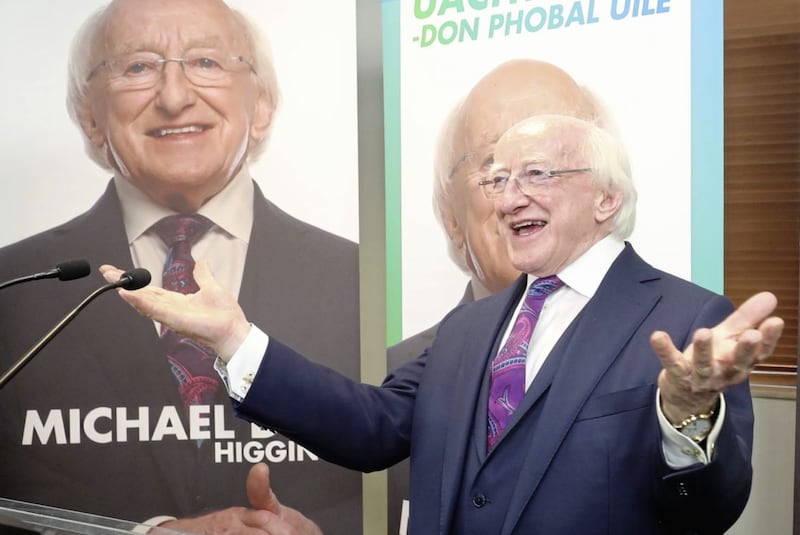The Irish general election is underway, and the campaign is hitting the home stretch.
As we all begin contemplating the next government and just who will be in it, we should be pushing for it to step up the progress in relation to Northern Ireland, namely in the areas of the Shared Island Unit, the debate about unification, and getting voting rights out of the rut they have been in for years.
Looking back through the party manifestos of the 2020 campaign, the ghost of Brexit was still very much hanging over the election, and even more so in relation to what the parties were promising regarding Northern Ireland.
I write that not to make any criticism, but February 2020 was still an uncertain time.
The Executive had just been restored, and the Withdrawal Agreement had just been finalised. Justifiable caution in those circumstances was more than understandable.
Yet that was then and in late 2024, we now have a different political dynamic that should allow parties to be more ambitious on the Northern Ireland file.
Many of the recent successes bring home the case that the Irish government can play a more forward-facing role in day-to-day life across the island of Ireland.
With Brexit fading into the rearview mirror and a period of no elections on the horizon across both jurisdictions, it is time to consider some new approaches.
The success of the Shared Island Unit highlights that when the Irish government sets its mind to it, it can achieve real and substantial results.
Derided in some quarters when it was created for lacking ambition, few four years on would doubt its strategic value.
One of the most effective soft power initiatives ever undertaken by an Irish government has achieved real progress on many fronts.
The investments being made by this unit will stand the test of time for decades to come and have brought the work of the government into the daily lives of many people in Northern Ireland in a way that we have never seen before.
Supporting key projects such as the A5 and the redevelopment of Casement Park has helped demonstrate the positive role that the Irish government can have outside of just supporting the peace process.

The next evolution of the Shared Island Unit should be into new areas of economic development and social policy that can benefit not just border areas but also the entire island.
Whatever shape the next government takes in Dublin, we should take confidence and heart that they can progress initiatives such as the Shared Island Unit forward and get other stalled issues moving.
For example, presidential voting rights for the wider Irish nation have long been promised but have yet to progress.
The next Irish government should use the next presidential election to make the case for reform so that by 2032, those Irish citizens based in Northern Ireland and elsewhere can vote for the President of Ireland. A referendum on this can be held between now and 2030.

Then we have the issue of Irish unification.
The outgoing taoiseach, Leo Varadkar, set tongues wagging earlier this year with his comments on RTÉ about why this issue should never be about money.
Those of us who support unification would agree with those sentiments.
However, the next government has a real opportunity with a solid economic situation and healthy budgetary numbers to help move this debate forward.
This does not mean a rush into a referendum, but it does mean being more open to the idea that this is a debate that is happening and that we should be putting more thought into how it could look at a broader level.
Whoever forms the next government will have more money than they know what to do with and a real chance to reshape the island agenda.
They should not shy away from it or waste this moment.
There will be few votes in doing it, but the long-term achievements could be massive if they allow themselves the ambition to pursue it.




